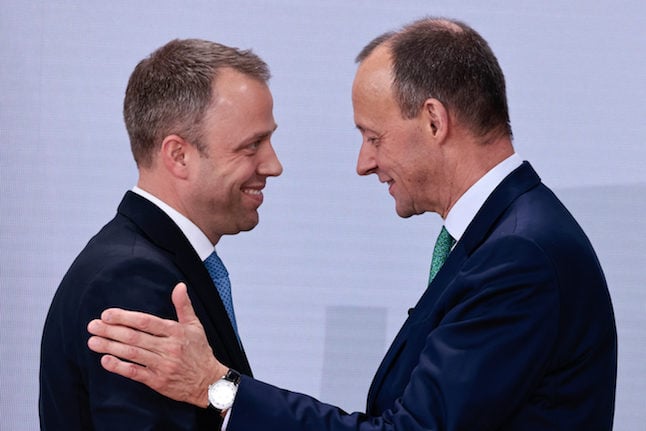Merkel left office in 2021 after 16 years in power and was succeeded by Social Democrat Olaf Scholz at the helm of a three-way coalition with the Greens and the pro-business Free Democrats.
Electoral defeat left the Christian Democratic Union (CDU) having to regroup and members gave their strong backing to Merz, a 66-year-old on the traditional right of the party, after twice rejecting him in recent years.
Merz, the only candidate standing, received the backing of 95 percent of 980 delegates at a virtual party congress and declared himself “deeply moved” to see the extent of their support.
The CDU are licking their wounds after a defeat to Scholz’s Social Democrats in September elections which saw Merz’s predecessor Armin Laschet lead the party to the worst showing in its history.
“We must be a strong opposition,” said Merz as he targeted success in a slew of elections to regional assemblies slated this year.
He also took aim at Scholz, claiming the new chancellor should take a harder line both on Russia’s ambitions in Ukraine and on making vaccination against Covid-19 obligatory.
The new CDU helmsman is a long-time opponent of Merkel, their rivalry dating back 20 years to when the former chancellor removed him from the strategically key post of chairman of the parliamentary party.
In 2009, Merz stepped away from politics to move into finance, becoming a multimillionaire, also taking on several influential roles within large companies – he was notably an investment manager with Blackrock. He also worked as a commercial lawyer.
The married Catholic father of three, who first entered parliament in 1994, owns two aeroplanes and pilots one himself.




 Please whitelist us to continue reading.
Please whitelist us to continue reading.
A good example of just how wrong-headed and out of touch with much of the changing population of Germany the CDU is these days. Overwhelmingly electing the wrong person at the wrong time. Great for the rest of us of course!
May many years of oppostion await you….